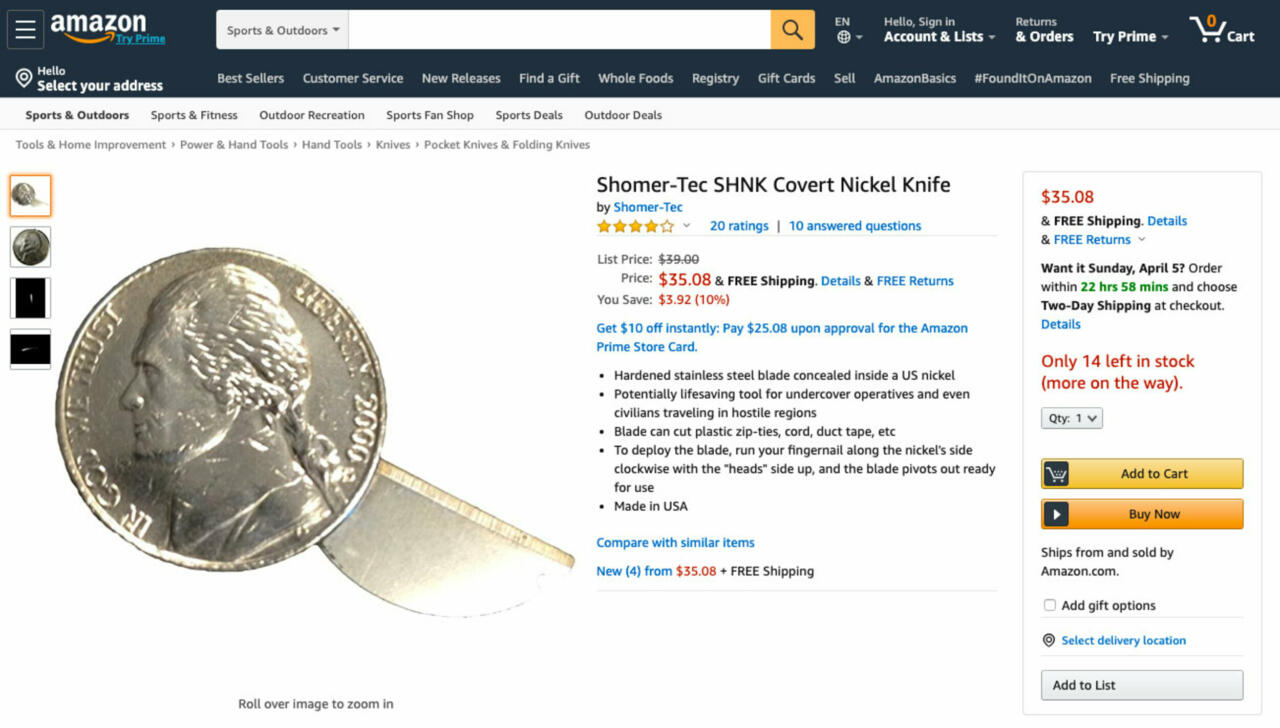Hello, friends,
In 1994, when Jeff Bezos was first setting up his online bookstore, he bought the domain name Relentless.com. He eventually decided to go with another name—Amazon.com—but he never gave up on the idea of relentlessness. Even today, when you type in the URL Relentless.com, it redirects to Amazon.com.
And Amazon has surely been relentless. In 1995, it set the goal to be a place where “customers can find and discover anything they might want to buy online.” And today, in 2020, it dominates online retailing with about 40 percent of the U.S. market and 13 percent of the worldwide market.
But Amazon doesn’t appear to have been as relentless about keeping deadly items off of its virtual shelves. In an investigation we published this week, investigative data journalist Jon Keegan and reporter Annie Gilbertson found that Amazon has failed to effectively enforce its list of potentially deadly and dangerous banned items and keep them off its platform.
Jon and Annie examined five of the categories of goods that Amazon bans from its platform related to weapons, criminal activities, and spying. They found nearly 100 listings that broke the rules—including sellers offering AR-15 parts, injectable drugs and equipment used to make counterfeit pills and for the dangerous process of extracting hash oil.
Some of these products have led directly to death and injury. Eric Falkowski told Annie in an interview from prison that he bought pill presses on Amazon.com and used them to make counterfeit prescription opioids. Falkowski is serving a 22-year sentence after at least two people died and 20 others were sickened from his pills.
Many of the items were sold by third-party sellers who slipped through Amazon’s automated system for filtering out banned product listings. But five of the items were sold directly by Amazon itself—showing just how poorly Amazon enforces its own prohibitions.
Jon and Annie also found that it was easy peasy to list banned items themselves. Jon created a seller account and successfully listed two items that were prohibited on Amazon.com yet legal to sell under New York State and federal law: an armorer’s wrench for use on an AR-15 and a 10-round AR-15 magazine.
He used the manufacturers’ photos and bypassed Amazon’s filters by not mentioning the keyword “AR-15” and by using a different universal product code (UPC) for the magazine. Soon after the listings were approved, he took them down.
Our reporters also found that Amazon’s own autocomplete systems helped circumvent the rules against prohibited items. When they typed “bong”—which is a prohibited item—into the website’s search bar, autocomplete suggestions included “bongs for smoking weed.” When they typed “pill press,” autocomplete suggested “pill press for making pills xanax.”
When they spotted a product listing for a paperweight desk organizer that was actually an AR-15 vise block, Amazon’s “frequently bought together” tool suggested other gunsmithing tools.
After they contacted Amazon, it removed most of the listings for banned items that we identified, although at least three have popped back up since. The company also removed six specific autocomplete terms that we mentioned.
Amazon spokesperson Patrick Graham said that the company takes proactive measures to prohibit banned items and that it stopped more than six billion suspected bad listings from posting last year. He said that autocomplete is a feature informed by “similar searches by other customers.”
He added: “We are not liable for those products because we do not make, distribute, or sell those products.” Amazon has long argued that it is not liable for damage created by products sold by others on its site, because of the law that was the topic of last week’s newsletter: Section 230 of the Federal Communications Decency Act, which states websites are not responsible for third-party content that appears on their sites.
But Graham had nothing to say about the five banned products we found that were sold directly by Amazon itself, or about why Amazon fails to consistently enforce its own rules prohibiting certain product listings.
Amazon may be relentless—about increasing its market share or shielding itself from liability—but that rigor doesn’t appear to extend to keeping potentially dangerous or deadly goods off its platform
In the meantime, we plan to be relentless watchdogs for the tech platforms that claim to be policing themselves.
As always, thanks for reading.
Best,
Julia Angwin
Editor-in-Chief
The Markup
